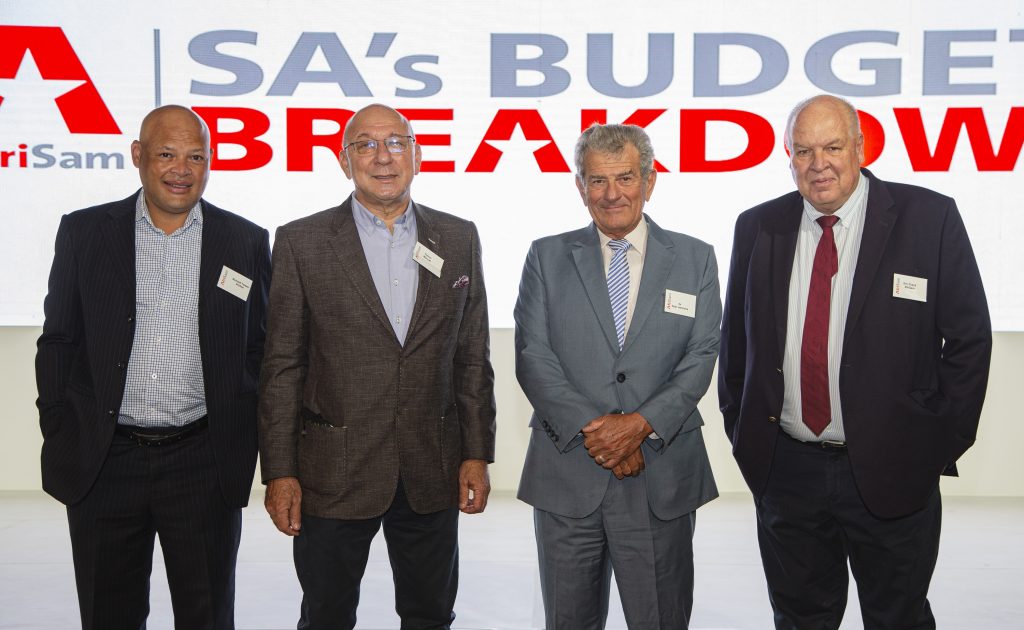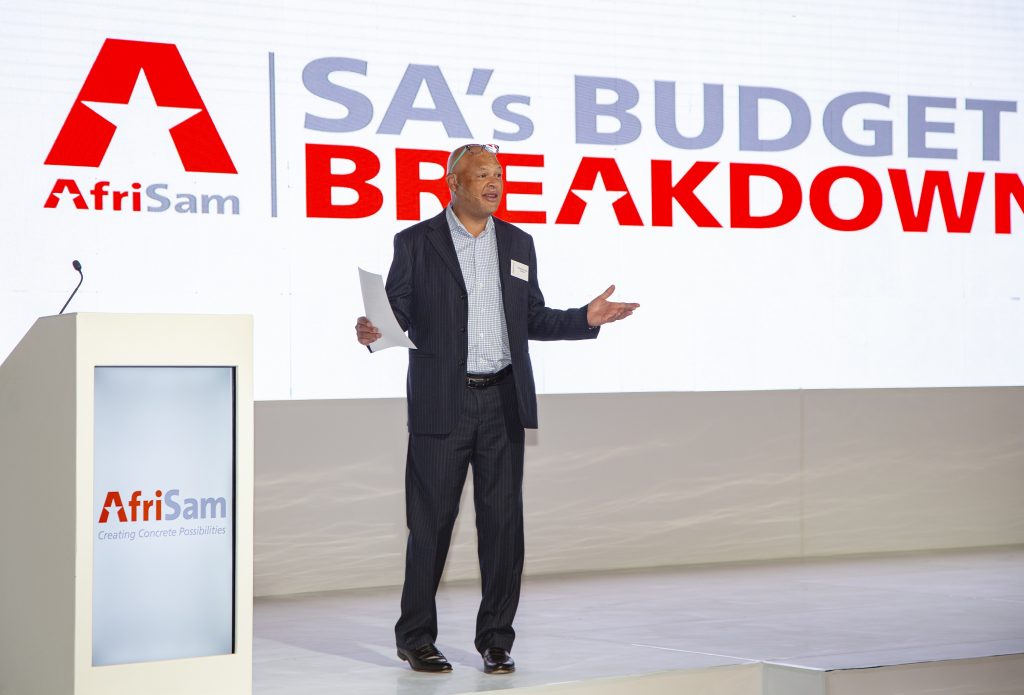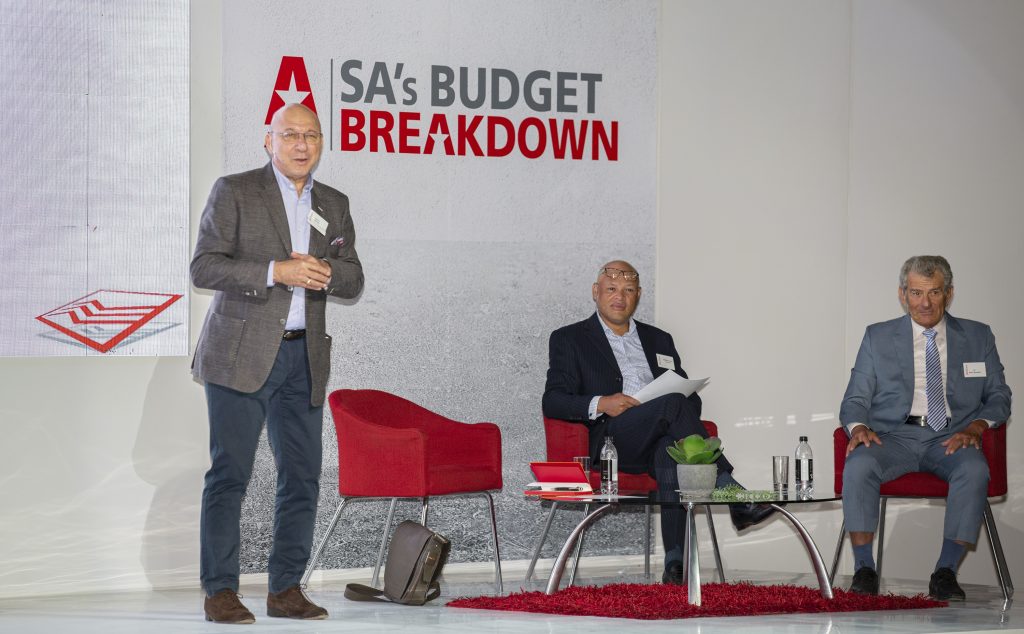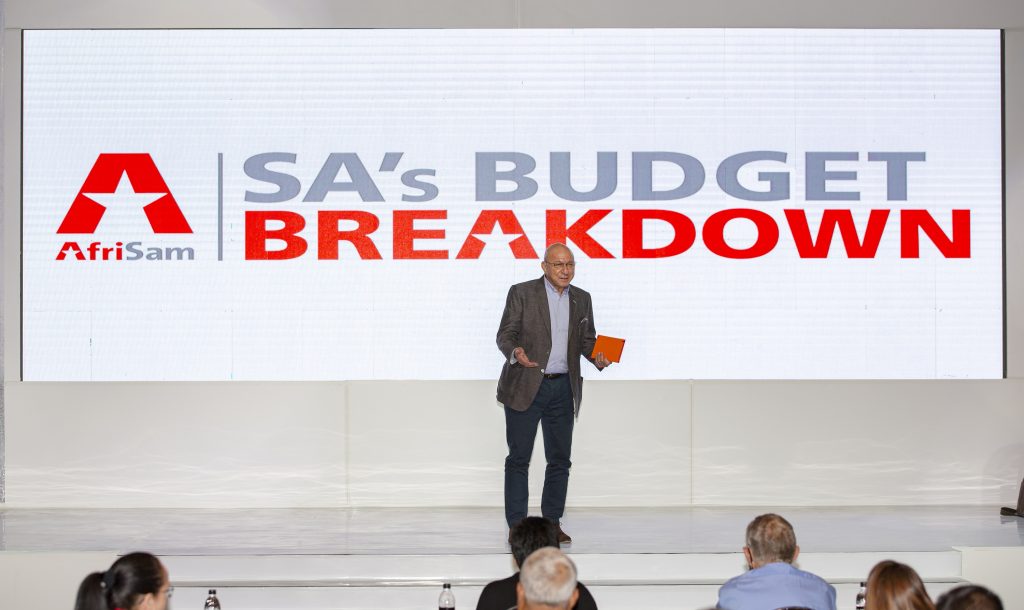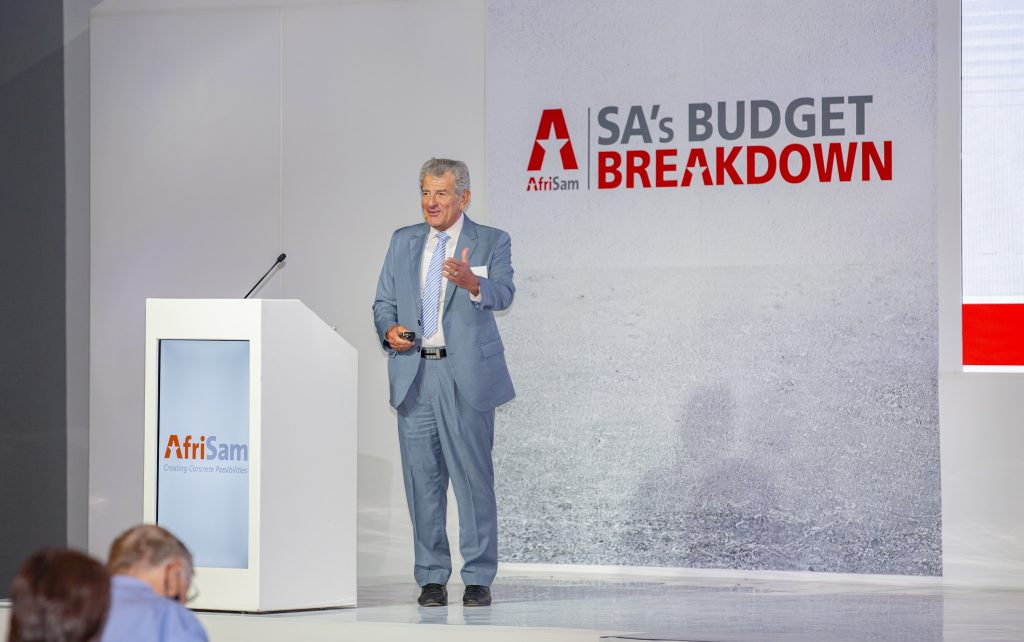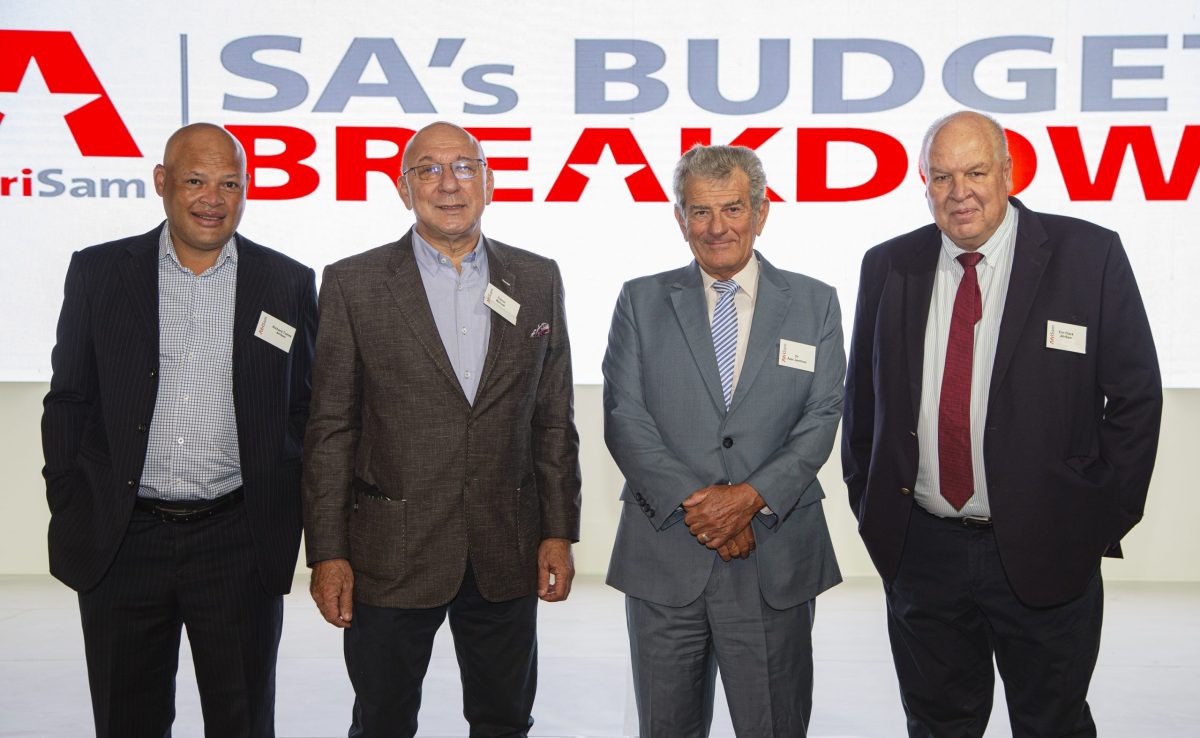
AfriSam’s recent National Budget Breakdown function, now in its fifth year, has become an anticipated annual event for the construction sector with valuable insights being shared. This year, director and chief economist of Econometrix, Dr Azar Jammine unpacked what the new budget means, while South Africa’s longest serving former finance minister, Trevor Manuel, provided commentary and fielded questions from participants.
Speaking at AfriSam’s recent National Budget Breakdown function, an annual event now in its fifth year, Dr Azar Jammine, director and chief economist of Econometrix, gave a thumbs up to the 2022 budget, saying it was “highly satisfactory with no harm”.
He cautioned, however, that servicing the national debt was becoming increasingly onerous and now accounted for 14 % of government expenditure. He also expressed the view that there was nothing in the budget “to make one believe sustainable growth will improve forthwith”.
Jammine congratulated Minister of Finance, Enoch Godongwana for making a commitment to increased spending on capital assets while, at the same time, attempting to curb the growth in the public sector wage bill. “We’re now seeing an attempt to slow down the compensation of employees as a percentage of the overall tax bill and to increase the amount of investment in capital assets,” he said.
Jammine was the main speaker at the event and reviewed both the global and local economy. Sharing the stage with him was Trevor Manuel, who served as South Africa’s Minister of Finance from 1996 to 2009, making him the longest serving finance minister in South Africa’s history. Manuel provided valuable and insightful commentary, based on his intimate knowledge and experience. He also fielded many questions from the floor and enlightened the audience with his unique insights into the South African economy.
Manuel referred to the “ravages of state capture”, saying it was not just about corruption but also the destruction of institutional capacity. As an example, he noted that the SA Police Service (SAPS) would be underspending its budget in the 2021/22 fiscal year by around R20 billion, giving the lie to the often-heard claims that the SAPS was underfunded.
He added that the situation was even more chaotic at provincial and municipal level. On the challenge of water supply, he asked how it was possible that one of the major metros in the country – Gqeberha – had failed to maintain its water infrastructure.
He also referred to “this horrible phenomenon called the construction mafia”, saying that it basically meant that the pricing of contracts could not be realistic and that projects could sometimes not commence, never mind being completed.
Reviewing the global economy, Jammine said it had grown by 5,9 % in 2021 with the IMF predicting that this figure would fall to 4,0 % in 2022 and 3,8 % in 2023. By contrast, South Africa had shown 4,6 % growth in 2021, well below the global average, with the IMF forecasting that this would drop to 1,9 % in 2022 and a paltry 1,4 % – the lowest of any major economy – in 2023.
“Since 2009 South Africa’s growth trajectory has lagged that of the world economy,” he said. He added that while activity in the world economy was back to the levels seen before the onset of the COVID pandemic, this was not the case with South Africa, mainly due to structural factors that inhibited growth.
These structural impediments included skills shortages, state capture and corruption, cadre deployment, the deterioration of SOEs, lack of infrastructural investment, over-regulation and non-payment for work, and labour market restrictions.
On the subject of debt, Jammine told his audience that government debt to GDP ratios worldwide were “quite terrifying” with US debt, for example, now amounting to between 120 – 130 % of GDP. He also noted that since 2020, the US Fed had injected as massive stimulus recovery package of around five trillion dollars into the economy – to counter the economic effects of COVID – and that other countries had followed suit. The result was sharp upward pressure on prices.
“The genie is now out of the bottle in the form of a massive surge in inflation the likes of which we have not seen in 40 years in the world economy,” he observed. He added that South Africa’s inflation rate was below that of the US for the first time in 30 years.
Referring specifically to South Africa’s budget, Jammine said SARS had collected R182 billion more in taxes than anticipated, with this economic windfall giving Minister Godongwana considerable leeway in formulating the budget. He pointed out that the windfall was largely due to increased payments by the mining industry as a result of mining companies having benefitted from the current surge in commodity prices.
Turning to some of the specifics of the South African economy, Jammine said construction – AfriSam’s primary market – had been the weakest sector of the economy over the past decade and now accounted for just 2,5 % of GDP. This was due to gross capital formation in South Africa having declined, as a percentage of GDP, from 19 % around 2014 to the current 13 %.
Concluding his presentation on a positive note, Jammine said the construction industry could receive a big boost from an increase in infrastructural spending. He noted that 51 well-defined projects worth R340 billion had been identified in the 2020 Economic Recovery and Construction Plan and that the project pipeline has since been expanded to include an additional 55 projects worth R595 billion.
This amounted to a grand total of R935 billion representing 126 % of total annual fixed investment. He said that if all – or even just some – of these projects were implemented it would be a game changer for the industry and a major boost to the economy, with growth increasing by as much as 2 % a year.
